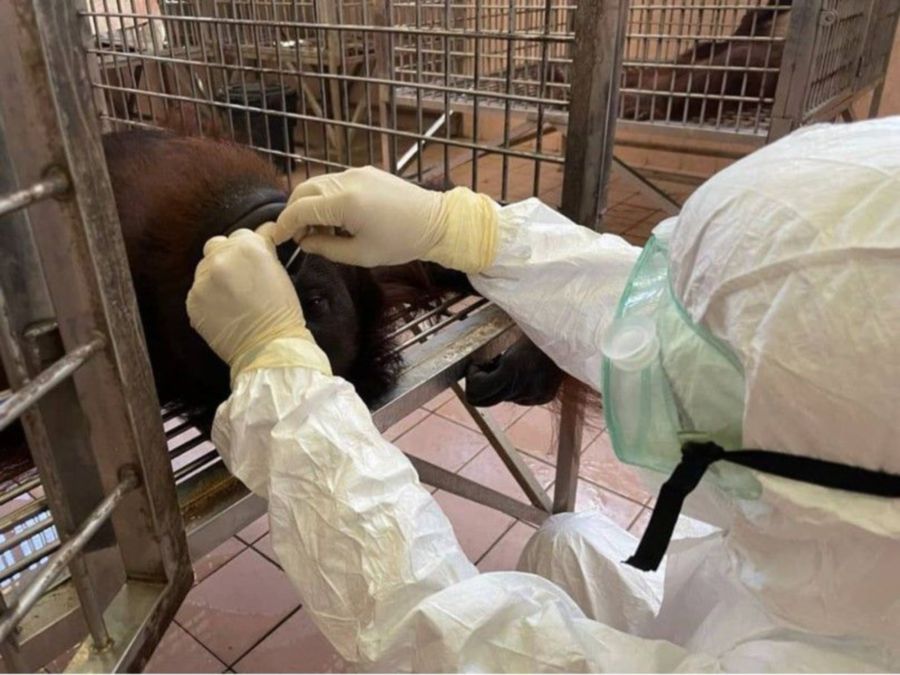By Olivia Miwil - September 11, 2021 @ 6:22pm
KOTA KINABALU: Thirty orangutans in Sabah have tested negative for Covid-19.
The tests were made following the high number of Covid-19 cases in the state, including cases involving the Sabah Wildlife Department staff members.
The tests were carried out on all its captive orangutans at the Sepilok Orangutan Rehabilitation Centre and at Lok Kawi Wildlife Park, department assistant director Dr Sen Nathan said in a statement.
"We immediately initiated a full lockdown on the primate facility by testing all of the orangutans to ensure that they are free of the infection.
"Testing for Covid-19 has been a vital tool in helping us get through this pandemic, and it is similarly important for the orangutan population.
"The disease could prove vastly detrimental to their health and set back their rehabilitation. With all results coming back negative, this is testament to the stringent care being carried out by our staff."
Those tests were held by a veterinary team from Sabah Wildlife Department and Wildlife Rescue Unit headed by Dr Rosa Sipangkui, Dr Nabila Sarkawi and assisted by Dr Mischellena Samanthan and Dr Umamaheswary Kalamanathan.
The department director Augustine Tuuga said it was the first time orangutans were tested using a Covid 19 Antigen test.
"I have directed our veterinary team to continue to monitor all the orangutans closely for any sign and symptom of Covid -19 infection and to repeat the test on a scheduled basis.
"It is our utmost priority to make sure the orangutans are given the best veterinary care possible."
He also thanked Orangutan Appeal UK (OAUK) chairman Datuk Sue Sheward, for assisting in the funding of the Covid 19 Antigen test kits, pulse oximeters, and preventive medication for the orangutans and staff.
"Orangutans share 96.4 per cent of our DNA. It is vital we are able to test them for the virus in order to continue to protect the species.
"Similarly, the health and well-being of our staff is important as they have been working as normal throughout the pandemic to provide the same high level of care they have always done," Sheward said.
This year OAUK would also be supporting the conservation activities conducted by the department's newly formed unit called the Endangered Species Conservation Unit that is based in Lahad Datu besides supporting the Wildlife Rescue Unit and Sepilok Orangutan Appeal.

Comments
Post a Comment